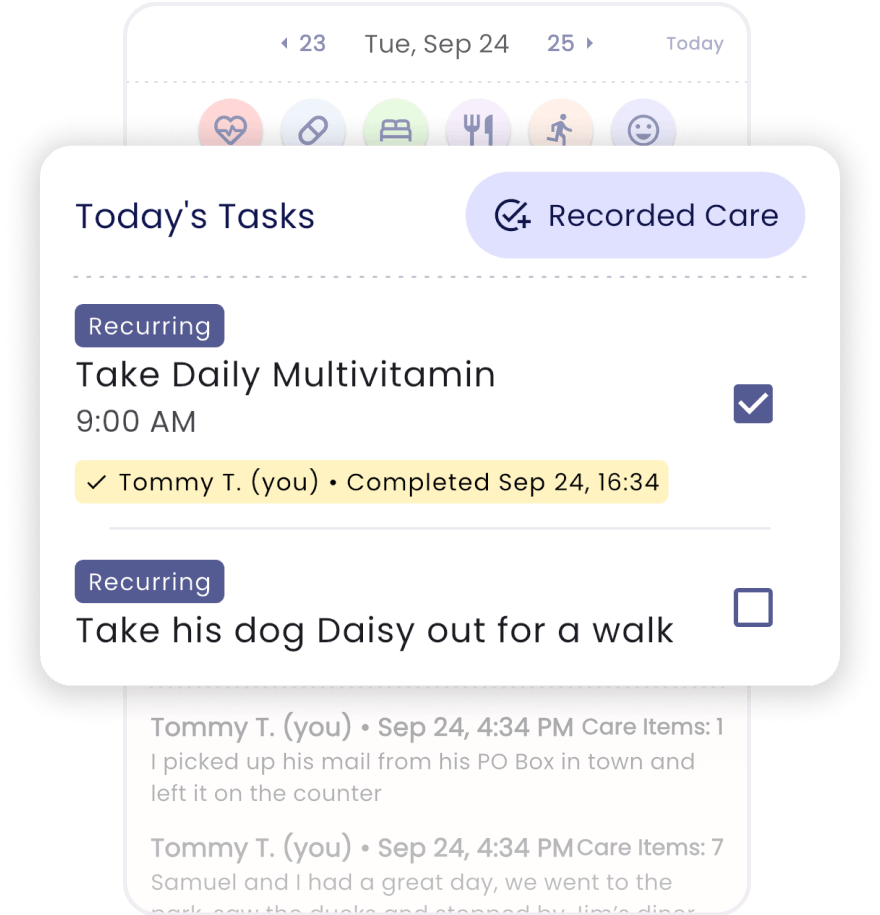Self-Care Strategies for Caregivers: Avoiding Burnout and Prioritizing Well-Being

Caring for others is deeply rewarding, but caregivers often neglect their own well-being. The emotional, physical, and mental demands of caregiving can lead to burnout if self-care is not prioritized. Just as caregivers encourage the individuals they support to maintain a healthy lifestyle, it’s equally essential for caregivers to practice self-care strategies to sustain their ability to provide high-quality care.
Understanding Caregiver Burnout
Burnout is a state of emotional, physical, and mental exhaustion caused by prolonged stress. It can result in symptoms such as fatigue, anxiety, irritability, and even physical illness. Caregivers often experience burnout due to long hours, emotional strain, and the physical demands of the job. Recognizing these signs early and taking proactive steps to combat burnout can make a significant difference in a caregiver’s well-being.
Self-Care Strategies for Caregivers
1. Prioritize Physical Health
Maintaining good physical health is foundational to effective caregiving. Caregivers should focus on:
Eat a balanced diet rich in nutrients to sustain energy levels.
Staying hydrated throughout the day.
Participate in regular physical activity, such as walking, stretching, or yoga, to relieve stress and improve overall health.
Prioritize sleep to ensure proper rest and recovery.
2. Set Emotional Boundaries
Caregivers often develop deep emotional connections with those they care for, which can lead to emotional fatigue. To maintain emotional well-being:
Acknowledge personal limits and avoid overextending.
Seek support from peers or supervisors when feeling overwhelmed.
Maintain a clear distinction between work and personal life.
Engage in hobbies or activities that bring joy and relaxation outside of work hours.
3. Practice Mindfulness and Stress Reduction Techniques
Mindfulness and relaxation techniques can help caregivers stay present and reduce stress. Consider:
Practicing deep breathing exercises.
Engaging in meditation or guided relaxation sessions.
Taking short breaks throughout the day to reset and recharge.
Keeping a gratitude journal to focus on positive aspects of caregiving.

4. Leverage Support Networks
No caregiver should feel alone in their journey. Building a strong support network is essential:
Connect with fellow caregivers for shared experiences and advice.
Join caregiver support groups online or in-person.
Utilize employee assistance programs for mental health and wellness support.
5. Use Technology to Streamline Tasks
Caregiving requires managing numerous responsibilities, from scheduling to tracking patient needs. A care management app can help caregivers:
Organize and document care tasks efficiently.
Communicate seamlessly with family members and care teams.
Reduce stress by ensuring that no critical tasks are overlooked.
Encouraging a Culture of Self-Care in Caregiving
Employers and healthcare organizations should encourage a culture of self-care by:
Providing adequate breaks and flexible scheduling when possible.
Offering wellness programs or access to counseling services.

Promoting the use of caregiving apps to reduce administrative burden.
Nanaroo Focus: Caregiving Touchpoint - Diet
Final Thoughts
Professional and family caregivers alike play an invaluable role in supporting individuals in need, but their own health and well-being must not be overlooked. By implementing self-care strategies and leveraging technology, caregivers can enhance their well-being, prevent burnout, and continue providing compassionate care.
Taking care of yourself isn’t a luxury—it’s a necessity. Prioritizing self-care ensures that you can continue to make a meaningful impact while maintaining your own health and happiness.


